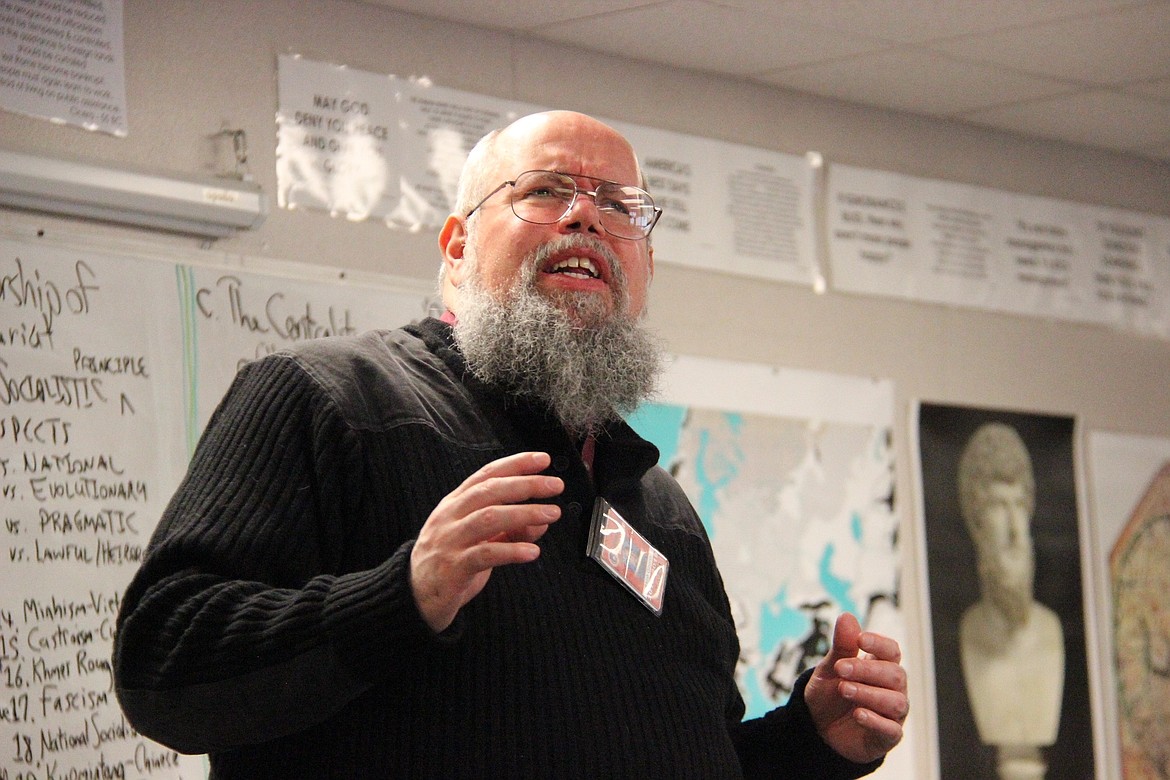Op-Ed: Put 'public' back in public schools
RALPH GINORIO/Keep Right | Coeur d'Alene Press | UPDATED 3 years, 8 months AGO
In August, many of us anticipate with longing or dread the beginning of the new school year. I recall how I was thrilled at the prospect of school as a kindergartener. Later, I looked on it with a more balanced blend of excitement and resignation. School is a mixed bag.
I recall asking my mom why certain things were required of me. I’ve never performed well in math, and, as math is the basis of science, I had increasing difficulty there as well. What could possibly be so important as to demand so much of my time and effort?! Why was success in school so important to my future?!
As a teacher, I still ask these questions. It continues to be important to me that I not waste anyone’s time.
In my classroom, I teach the record of human choice over the past 5,000 years. Students see examples of both wisdom and folly. Our human nature, good and evil, is fully on display.
Students develop a sense of the wider world, sharpening their personal value systems by analyzing these events. If I teach these lessons with integrity, my time with students should not be a waste.
Every successful teacher explains why the topic they teach is important. Like most people, students can reliably spot nonsense. If teachers do not believe in their own lessons, why should students? The task of instructing actual students daily generally keeps teachers sufficiently well-grounded in objective reality to resist self-delusion.
Self-delusion involves seeing the world as one wishes it to be instead of how it actually is. It is the great trap of successful adults. Power can insulate a leader from realities that defy their own preferences. Such leaders can, even unknowingly, compel others to deny objectivity and instead cater to their prejudices.
This is as true in education as it is anywhere else. If one leaves the classroom to shape curriculum or manage schools, then one’s contact with students diminishes. The higher one goes in the hierarchy, the less one has to do with students, parents or their concerns. Ultimately, one’s circle contracts to include mostly other educational experts and the politicians who fund schools.
This is how we’ve come to today’s crisis about the true purpose schools serve. Last year, the leaders of School District 271 adopted, with no fanfare, a “Social & Emotional Learning Curriculum.” This framework de-emphasizes traditional curriculum in favor of shaping the character and values of each student. This is the source of their controversial “Portrait of a Graduate” and of plans to teach values analogous to Critical Race Theory by any other name.
Insulated educators have changed the basic mission of schools. When people from beyond their consensus-group challenge this, these experts often react with incredulity and resentment. Educational leaders must be reminded that public schools belong to the public.
Parents, taxpayers and even students expect schools to prepare graduates for the world beyond school. Citizens of “the real world” demand that schools serve the traditional mission of acculturating the young into the skills and values of our Western Civilization and preparing them for an independent adulthood. Voters must return schools to this mission.
It was once said that war is too important to be left to the generals. Education is too important to be left to the experts.
• • •
In Maine and then Idaho, Ralph K. Ginorio has taught the history of Western Civilization to High School students for nearly a quarter century. He is an “out-of-the-closet” Conservative educator with experience in Special Education, Public Schools, and Charter Schools, Grades 6-12. He has lived in Coeur d’Alene since 2014. Email: rginorio@cdapress.com


